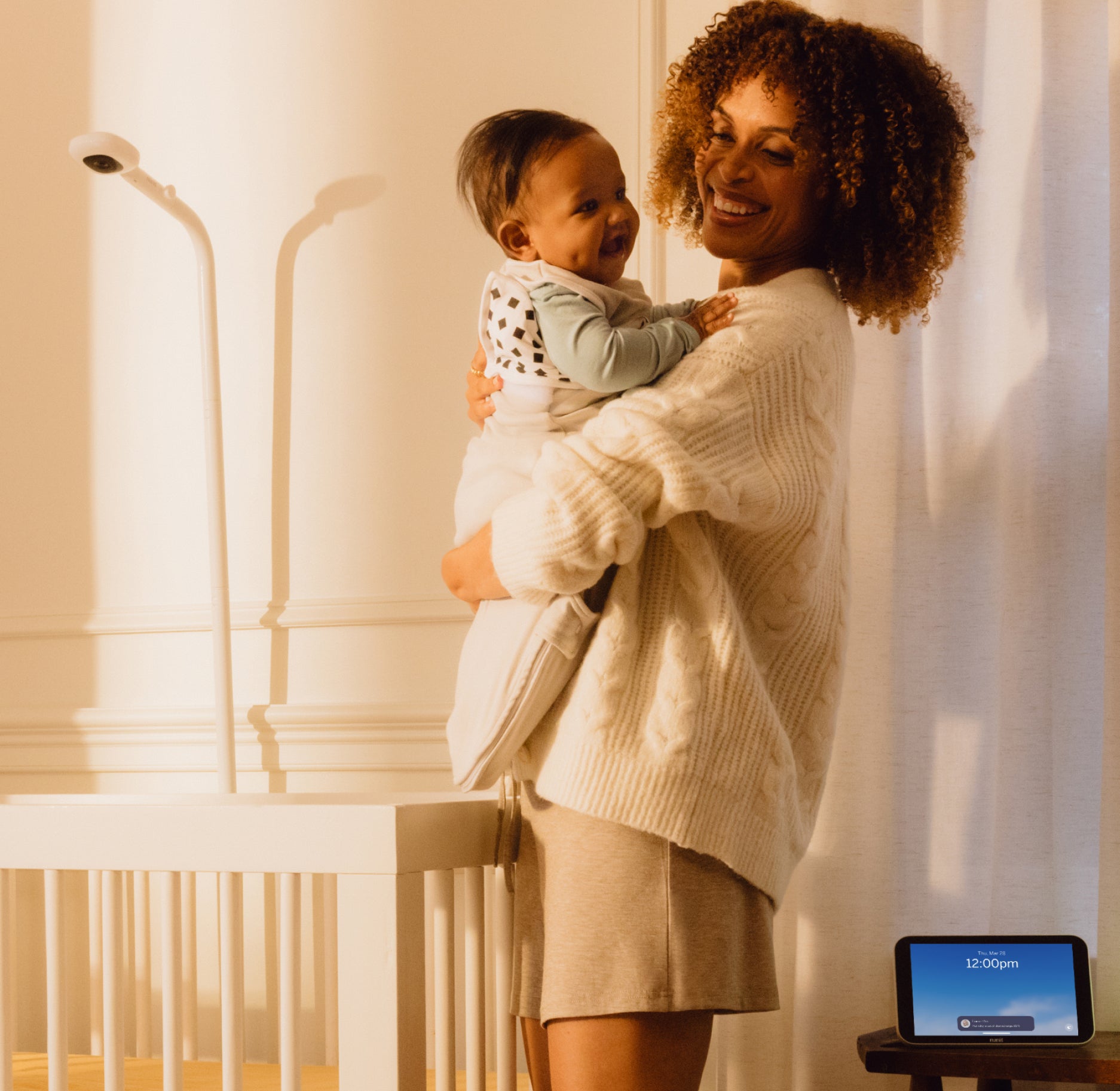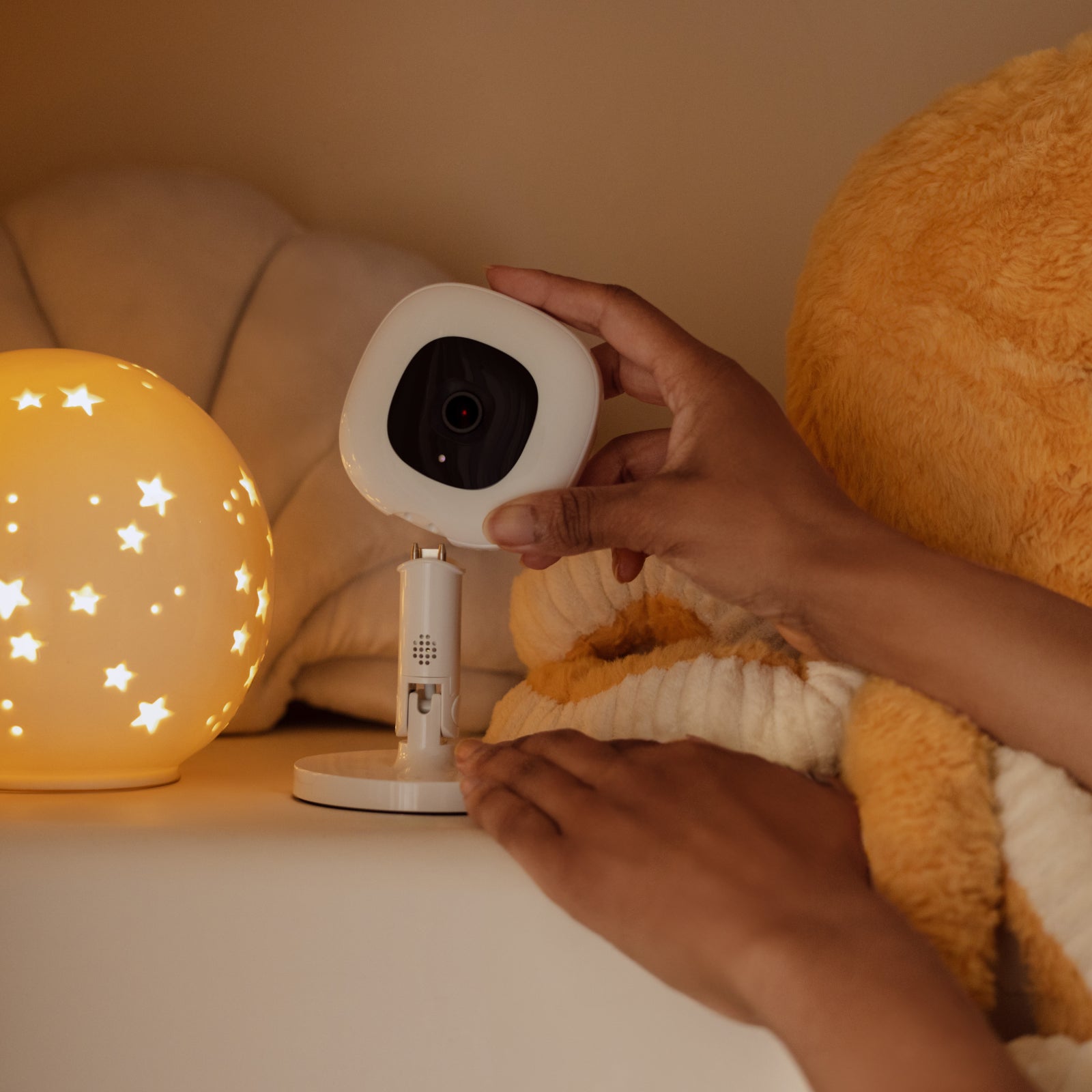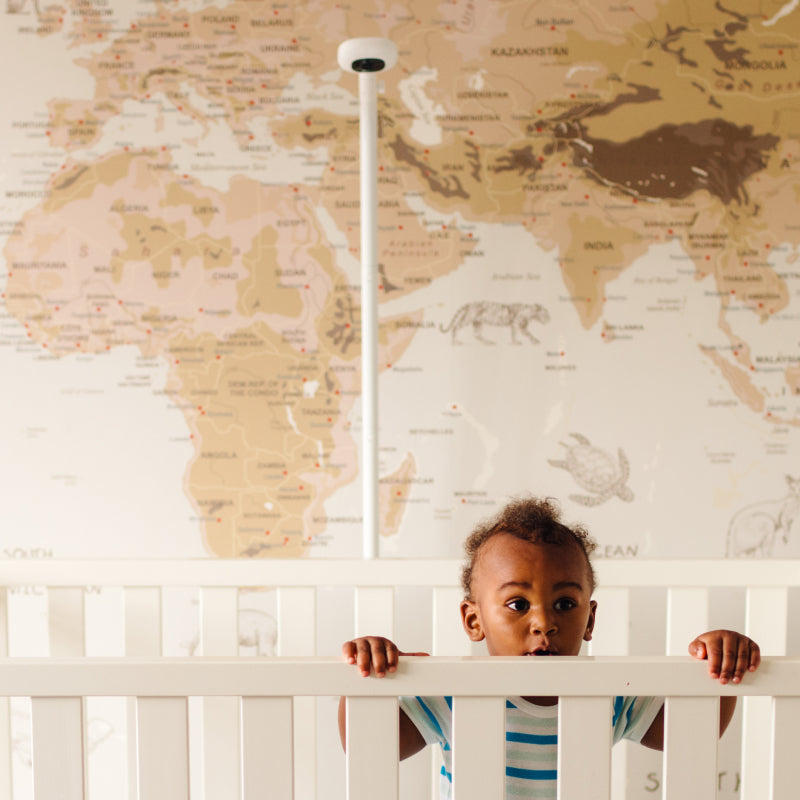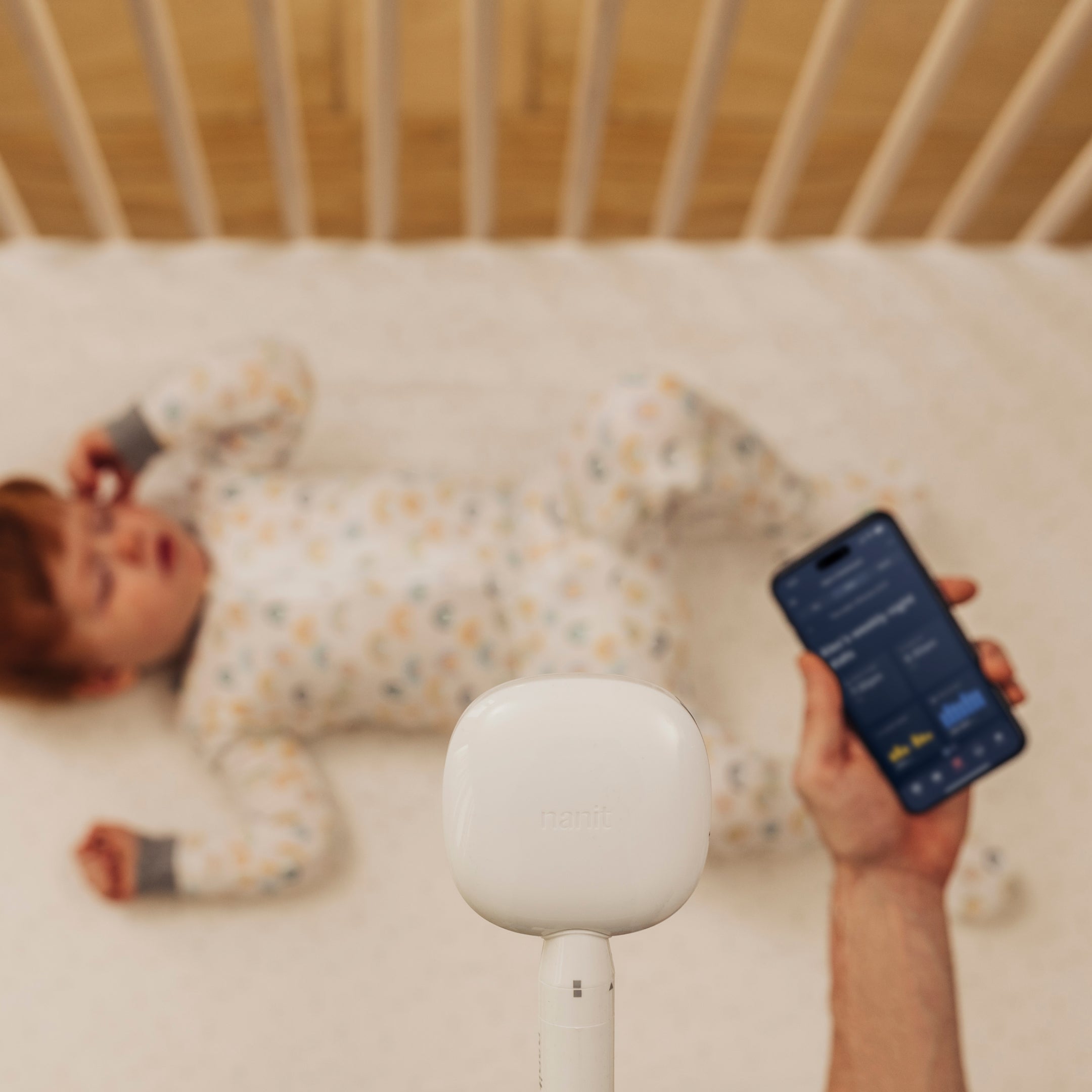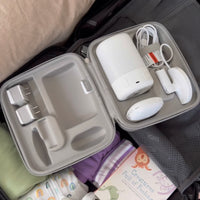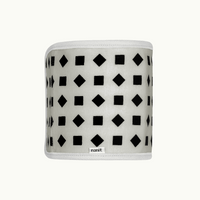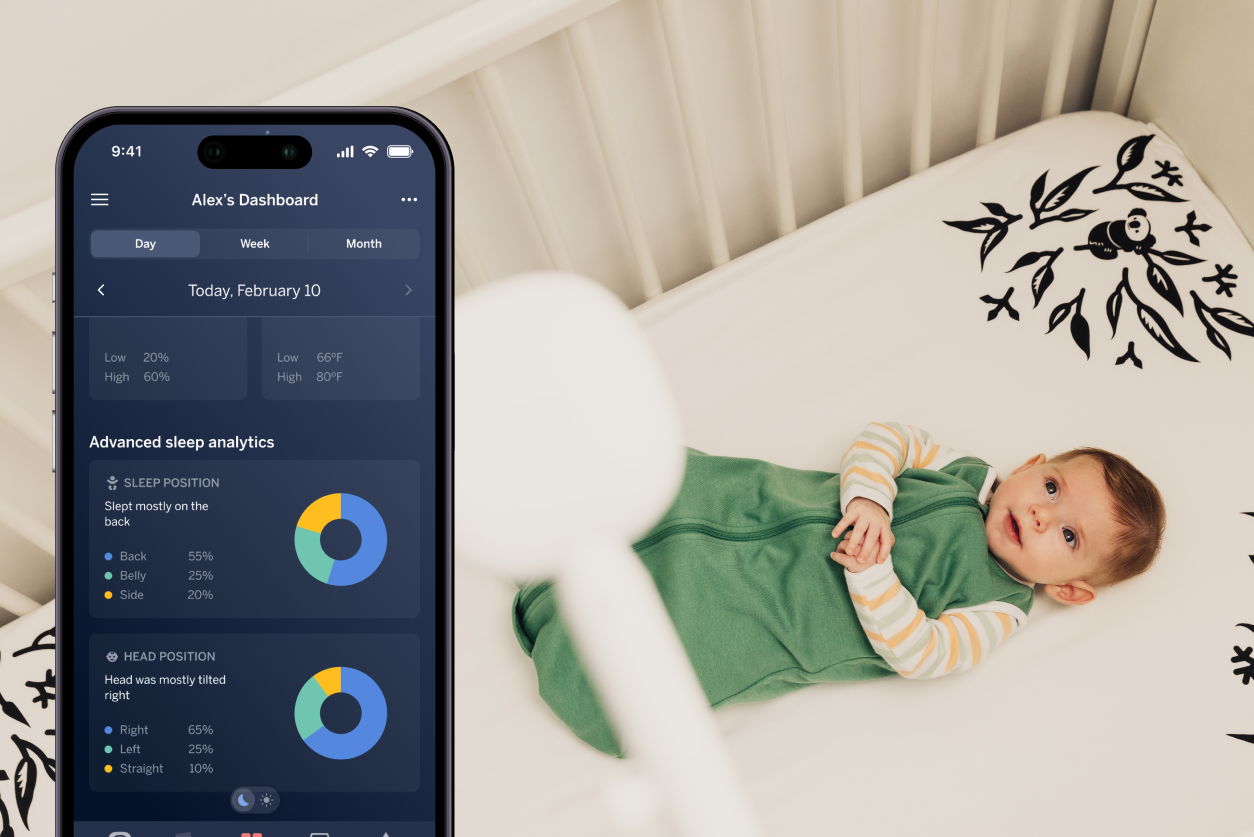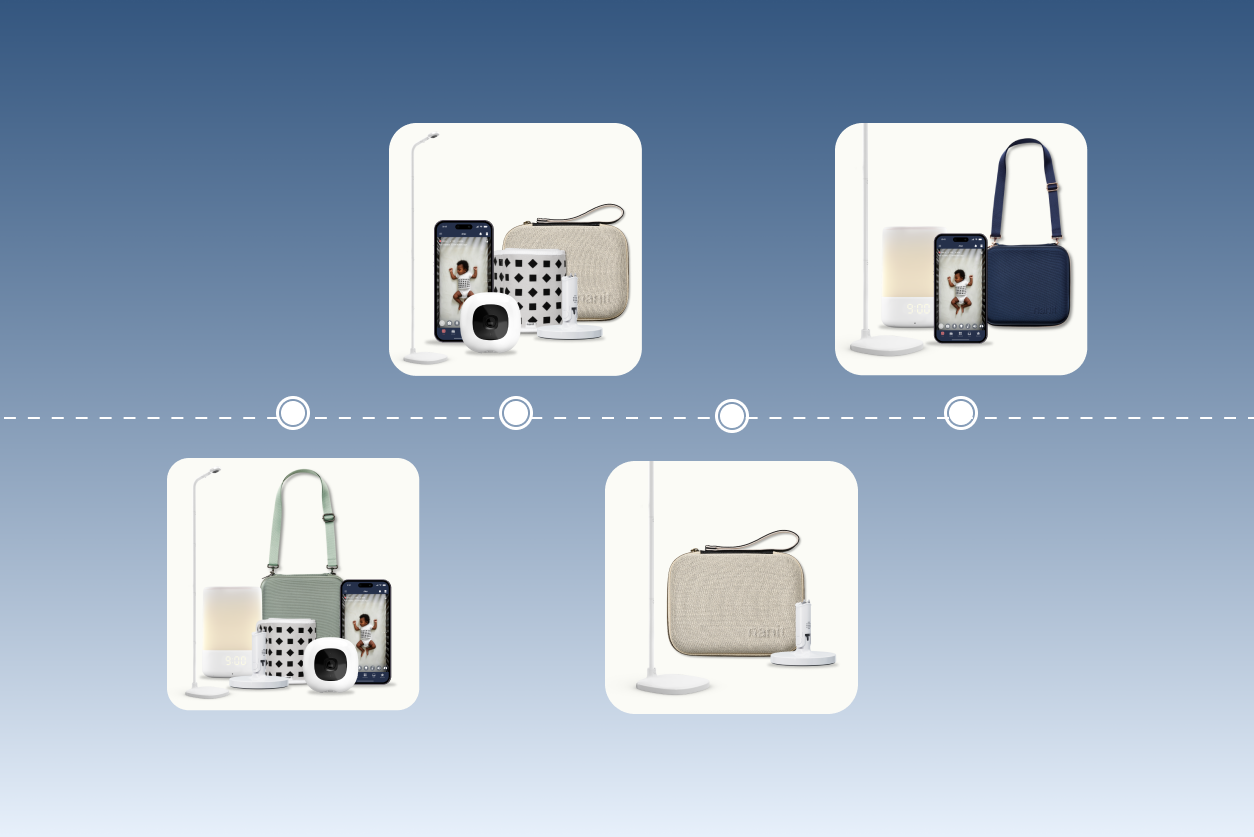The month of May marks Mental Health Awareness Month, a time when we come together to acknowledge the importance of mental health across all aspects of our lives. Particularly for parents and parents-to-be, prioritizing mental health is vital so that we can function in our day-to-day lives as caregivers and feel empowered doing so. But, between lack of sleep, lack of time, hormonal shifts and the mental overload of parenting logistics, it’s enough to make parents feel really stressed out.
That’s why we called in Dr. Tracy Dalgleish, a clinical psychologist who often works with individuals and couples, to address some of your most urgent questions around mental health - from sharing tasks with your co-parent to giving yourself a few minutes of self-care each day. Remember, if you’re feeling overwhelmed, anxious or depressed, contact your primary care provider who can help you find the help you need.
Q: I’m a single mom struggling with patience. My baby is 13 months old and currently going through a difficult behavioral phase with tantrums, fussiness, more crying and restlessness. She also has a poor appetite, so eating is another issue. I'm at my wit’s end with lack of patience plus having a full time job. How can I become more patient and understanding?
A: You have a lot on your plate. You’re working full time and trying to manage a young baby! It's important to acknowledge that you are feeling this struggle with patience and that you want something to shift. Is it possible to lean on support to help you fill your cup? Sometimes this can be through seeing other moms so that your baby can play with others, or possibly finding a neighborhood teen to come over and help, or leaning on family. When this isn't possible, calling on our coping tools is key.
In moments of frustration, practice taking five slow, deep breaths and pushing your feet into the ground. Instead of getting irritated with your baby's fussiness, let them know with a loving voice that you are going to put them in their crib (or another safe spot) for two minutes while you splash cold water on your face. You can't control your baby's fussiness, but you can also make different (and hard!) choices in how you respond to your emotions that show up.
Check in with your expectations. Are you expecting too much of you or your baby? Bring in a big dose of self-compassion. It might sound like, “This is a hard moment. Others experience these hard moments too. I am learning to be kind to myself in these moments of struggle." Or, put your baby in a stroller and get out for a short walk around the block. Movement and fresh air is a great reset for both of you. Remember that you have a choice. Your baby is learning about the world. You get to choose how to respond to them, even though it can be hard.
Q: I am experiencing feelings of guilt about being away from my baby. How can I feel better and still have a sense of self?
A: Try doing some self-exploration around what the guilt is about. Is it a belief that a mother should always be available and with their child? A belief that time for you is selfish? Practice letting these thoughts go, like placing them on a cloud and watching the cloud go by. It can also be helpful to remind yourself that thoughts and feelings and not truths - they do not make you a bad mom. Ask yourself what you are hoping to teach your baby by having them see you nurture your own identity. Would you want them one day as a parent to also be able to have their own identity? Sometimes it takes practicing doing these things for you several times before it starts to feel okay.
Q: How can I better care for myself if I am the primary caregiver?
A: The expression "You can't pour from an empty cup" is relevant for caregivers. Schedule self-care. If you can't leave the baby, make it a priority once they go to bed to do something that fills you up for 15 minutes. Find five minutes multiple times a day to do self-care (e.g., go for a quick walk, take five deep breaths, or put on a favorite song). Sometimes we need reminders to help us practice this. Practice saying no to requests when you have a lot on your plate. Practice asking for help and offloading tasks to others. Find something for you to do each week that brings you joy and a sense of fun and play.
Practice saying no to requests when you have a lot on your plate. Practice asking for help and offloading tasks to others. Find something for you to do each week that brings you joy and a sense of fun and play.
Q: Can postpartum happen 10 months after birth? I'm struggling to understand whether or not I'm experiencing postpartum depression at 10 months or just simply depression, and if it’s normal to have these feelings. I still struggle with accepting my body change, weight gain and recovering from an episiotomy to date. I don't recognize myself. I feel like my husband and I are roommates because we haven't had any intimacy since we found out we were pregnant in September 2020. I'm also feeling guilty knowing I'll have to go to work fulltime and knowing I'll have to leave my son for most of the day. Sometimes I feel like I just want to quit my job.
A: You have a lot going on in your life right now and it sounds like you are struggling. Based on what you are sharing and the grief and difficulties you have had, it sounds like now would be a good time to see your primary care provider or find a registered licensed mental health care provider.
To answer your question, according to the diagnostic manual (DSM-5) that clinicians use, "Major Depressive Disorder, with peripartum onset" is diagnosed during pregnancy or within the four weeks postpartum. However, there is much debate over what is seen clinically and some experts suggest this criteria should be changed to six months postpartum. With this being said, if you are experiencing symptoms of depression at any point during the postpartum period and/or you are struggling, please seek treatment. The diagnostic manual is used for clinicians to explain symptoms to other clinicians. I want to emphasize - depression is still depression.
Q: My partner has felt like a roommate to me since we had our baby. How can we rekindle our connection with each other?
A: I hear from many couples that they start to feel like roommates after having a baby so I want to first normalize this experience. It is a common experience. Does your partner feel the same way? It could be helpful to first explore how they are feeling about the relationship. Use this as an opportunity to talk about things that you miss in your relationship and places that you can start making changes. Knowing just how busy parents are, small things frequently is important.
- Daily Rituals. Do you greet each other at the door? Pour each other's coffee? What did you do at the start of your relationship to connect?
- Put your phones away and eat dinner together
- Bring back physical connection. Hug for 30 seconds or kiss for six seconds.
Q: How do you share the mental workload? I am the planner and while my partner does other tasks. But it gets overwhelming and I become resentful. We'll have an argument, things will change for about a week, and then the old habits kick in. Any strategies other than writing it all down on a big pad of paper?
A: It sounds like, even after talking about these things, you are still the director of the family unit, and that when things go off course, you have to be the one to notice this and redirect again. This is a common problem I see happening in couples - and frustrating too!
One thing to consider might be making the big list and dividing up the tasks from start to finish (as the current method isn't working). Doctor's appointment? They have to research when, book them, take the kids and do the rest. Summer camps? Lunches - they have to plan them out, add the things to the grocery list, and make them, plus do the cleaning of lunch boxes.
What are you doing in your relationship that puts you in the director role? Sometimes we get into patterns like "I'll just do it myself, it's easier" or "I'm already thinking about it, so I'll just do it." These patterns can lead us then to continue to carry the load and our partner's develop the belief "oh, she's got it, I guess I don't need to do it." Ask your partner what would help them to remember the things they are agreeing to take on. Some partners need tasks to be written down. Get them to write it down or put it in their phone.
Join the Nanit Community to connect with other parents and join regular expert events!



